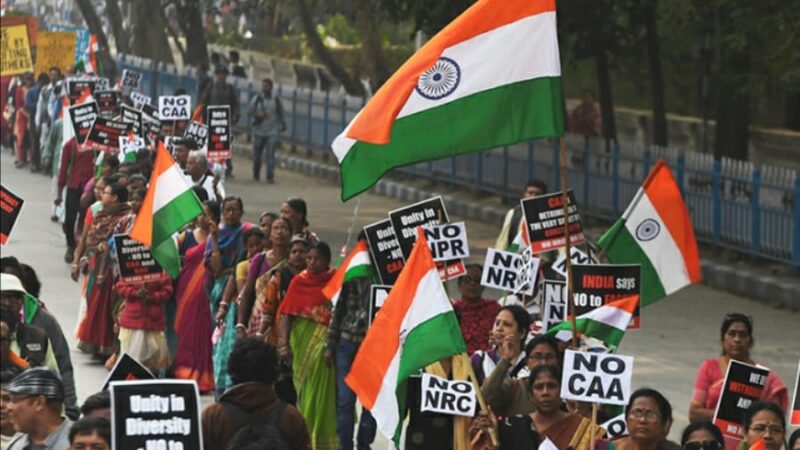Matrilineal system in India

In a matrilineal form of society, women are the chief decision makers, and they take the stand in almost all spheres of life.  Whether it is politics, judicial systems, business or inheritance, women are the main decision markers. Matrilineal societies are ones in which the laws of inheritance are based in favor of women rather than men. Matriarchy is something which we do not really see in India, but matrilineal societies do exist in small pockets within the country. Out of all the communities recognized as Scheduled Tribes in the Indian Constitution, some are actually matrilineal. Several communities in South India practiced matrilineality, especially the Tiyyas and Nair (or Nayar) in the state of Kerala, and the Bunts and Billava in the states of Kerala and Karnataka. The system of inheritance was known as Marumakkathayam in the Nair community or Aliyasantana in the Bunt and the Billava community, and both communities were subdivided into clans. The Garo and the Khasi tribes in Meghalaya and some other parts of the north-east also have matrilineal systems. This system was exceptional in the sense that it was one of the few traditional systems in western historical records of India that gave women some liberty and the right to property. The daughter of the family was always the heiress by default. Most women in these tribes were given the liberty to choose their own husbands. Matrilineal societies might not have given women as much power as a matriarchal society would endow them with, but there are social evils which are subverted through this system. Women are not judged as strictly as they are in the patriarchal societies. They can wear what they want to, the men in their household respect them much more, the hideous practice of female infanticide is considered abhorrent, and issues about dowry are not encouraged. The basic respect which these women are given, and the basic powers they are vested with are denied to other women in many parts of the country. The intrinsic ideology and how women are viewed changes when the system is matrilineal. Matrilineal societies are dwindling today. The more homogenized the cultures all over the world become, the more this system stands at risk. The Marumakkathayam system is not very common in Kerala and Karnataka these days for varied reasons. Society has become much more cosmopolitan and modern. Men seek jobs away from their hometown and take their wives and children along with them, thus hampering the matrilineal system as it existed in the smaller villages and joint families. But conceivably, there might still be a few sects in India that pay homage to this system. What it has done is that it has embedded within the male members of the respective societies, a certain amount of respect for the female members which very few places exhibit today. ————–
Whether it is politics, judicial systems, business or inheritance, women are the main decision markers. Matrilineal societies are ones in which the laws of inheritance are based in favor of women rather than men. Matriarchy is something which we do not really see in India, but matrilineal societies do exist in small pockets within the country. Out of all the communities recognized as Scheduled Tribes in the Indian Constitution, some are actually matrilineal. Several communities in South India practiced matrilineality, especially the Tiyyas and Nair (or Nayar) in the state of Kerala, and the Bunts and Billava in the states of Kerala and Karnataka. The system of inheritance was known as Marumakkathayam in the Nair community or Aliyasantana in the Bunt and the Billava community, and both communities were subdivided into clans. The Garo and the Khasi tribes in Meghalaya and some other parts of the north-east also have matrilineal systems. This system was exceptional in the sense that it was one of the few traditional systems in western historical records of India that gave women some liberty and the right to property. The daughter of the family was always the heiress by default. Most women in these tribes were given the liberty to choose their own husbands. Matrilineal societies might not have given women as much power as a matriarchal society would endow them with, but there are social evils which are subverted through this system. Women are not judged as strictly as they are in the patriarchal societies. They can wear what they want to, the men in their household respect them much more, the hideous practice of female infanticide is considered abhorrent, and issues about dowry are not encouraged. The basic respect which these women are given, and the basic powers they are vested with are denied to other women in many parts of the country. The intrinsic ideology and how women are viewed changes when the system is matrilineal. Matrilineal societies are dwindling today. The more homogenized the cultures all over the world become, the more this system stands at risk. The Marumakkathayam system is not very common in Kerala and Karnataka these days for varied reasons. Society has become much more cosmopolitan and modern. Men seek jobs away from their hometown and take their wives and children along with them, thus hampering the matrilineal system as it existed in the smaller villages and joint families. But conceivably, there might still be a few sects in India that pay homage to this system. What it has done is that it has embedded within the male members of the respective societies, a certain amount of respect for the female members which very few places exhibit today. ————–






